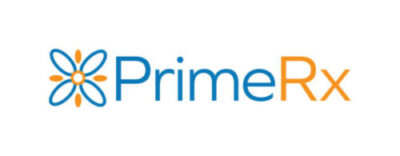Stay Ahead of Allergy Season Chaos: Keep Patients Informed and Healthy with PrimeRx

Introduction
Spring is in the air, and so too are the tree pollens, mold spores, dust mites, and other particles that trigger seasonal allergies. According to the Centers for Disease Control, roughly one-quarter of U.S. adults (25.7%) and nearly one-in-five children (18.9%) suffer from seasonal allergies, with another 5-7% at risk due to allergies to insects that reappear in the warmer weather including bees, wasps and fire ants.
As pharmacists are keenly aware, allergy symptoms can range from mildly annoying to deadly serious. Allergic rhinitis, more commonly known as hay fever, is a “rite of spring” that causes symptoms including sneezing, watery eyes, stuffy/runny nose, itchy eyes, and fatigue. But for people with asthma, hay fever can increase the risk of an attack. According to the Asthma and Allergy Foundation of America, allergens are the most common asthma trigger, often resulting in visits to the hospital and missed days of work or school.
The Allergy Asthma Network reports that seasonal allergies result in 4 million missed workdays each year, and pose a cost in excess of $8 billion to the U.S. economy. In addition, more than 50% of allergy sufferers say the condition affects their quality of life.
Pharmacists stand ready to help though, with an arsenal of medications and products that can help mitigate symptoms and expertise to ally patients’ concerns and explain their treatment options. And when it comes to seasonal allergies, the old adage “an ounce of prevention is worth a pound of cure,” is especially appropriate, since proactive use of allergy medications – before symptoms have started – can help mitigate the severity once they do begin.
Pharmacists help in seasonal allergy management in several ways that include:

Ways that Pharmacists Can Help
During Allergy Season
Counseling
The pharmacy is often the first stop when allergy symptoms appear. Many times though, notes Pharmacy Times, patients with new seasonal allergies “may believe at first that they are suffering from a virus,” and erroneously treat their condition with improper medications. This prolongs the patient’s period of suffering by leaving the true cause of the symptoms untreated. Instead, by consulting with a pharmacist, allergy symptoms can be quickly identified along with appropriate OTC therapy recommendations.
OTC Medications
Patients can often find relief on the pharmacy’s shelves with products including antihistamines, eye drops, nasal/sinus rinses, decongestants and throat lozenges. But with many options available, pharmacists can explain the differences between medications and offer recommendations. Pharmacists can also advise patients about side effects such as drowsiness, and the importance of regular adherence. To be effective, allergy medication needs to be taken every day, not just when the patient is experiencing symptoms.
Consumer Products
The pharmacy can also be a source of products like tissues and lip balm that can help an allergy sufferer get through the dreaded season. Allergy-related products should be well-stocked and conveniently located in highly-trafficked parts of the pharmacy such as the prescription counter and front register.
Dispensing
Not every patient will find relief through OTC medications. These patients, notes Pharmacy Times, will likely require care from a primary care provider or allergy specialist who may prescribe rescue and/or steroidal inhalers, oral steroids, or leukotriene inhibitors. Pharmacists can provide instruction on proper use of inhalers, and guidance about the importance of adherence in ensuring maximum benefits.
Education
Pharmacies can educate patients about how best to prepare for the unavoidable spring allergy season. This can include an “allergy awareness insert,” offered by the National Community Pharmacists Association (NCPA) that includes tips for avoiding allergy triggers and OTC medication options. Pharmacies can also disseminate information through SMS, phone, or email, which can be a highly effective way to communicate important messages to patients via their preferred format.
Seasonal Allergies are Under Control with PrimeRx
PrimeRx is a critical resource in facilitating allergy care management. The pharmacy management system offers comprehensive functionality that makes it easier for pharmacies to engage with patients about their treatment options, and ensure the required medications and treatments are available. Pharmacies can rely on PrimeRx capabilities that include:
· Communication. The system includes extensive pharmacy-patient communication options with messages generated either via SMS, email, or phone, based on a patient’s preference. Messages can be individualized or targeted at a larger group.
o Patient-specific messages can be customized with refill and pickup reminders, dosage reminders or information about a patient’s prescribed medication or specific allergy condition.
o Batch messages can be scheduled for transmission to larger groups. Specific to allergy season, this could include a proactive reminder to start a course of OTC allergy medications, or to stock up on allergy medications.
· Increased Consumer Goods Sales with PrimeRx POS. Pharmacies now have an opportunity to promote OTC and consumer goods with every POS transaction. PrimeRx POS is a cloud-based, highly intuitive solution that allows pharmacies to manage point-of-sale systems from any device with internet access. The solution offers comprehensive functionality for pharmacy transactions including seamless payment processing and signature capture, with all records stored within PrimeRx.
But the system goes beyond traditional POS functionality with a unique “suggestive selling” feature, that helps boost sales of OTC products. The suggestive selling function proactively recommends OTC products that complement a patient’s medication purchases. This could include, for example, a suggestion for eyedrops or a nasal spray for a patient picking up a prescription for an allergy-related medication.
· Adherence. PrimeRx includes several features that allow pharmacies to support patient adherence with their allergy management plans:
o Automated reminders about the need to take medications either as prescribed, or for an OTC medication, according to packaging instructions.
o Automated refill reminders and dosage information.
· Medication affordability. Prescribed allergy medications are often specialty medications, which can be costly. PrimeRx allows direct integration with the Real-Time Prescription Benefit from Surescripts solution which helps address affordability issues. The solution provides real-time information about a patient’s covered medications and identifies less-costly alternatives.
· Medication Therapy Management. Medication mismanagement is a leading reason for preventable adverse events, as well as for patient non-adherence. PrimeRx addresses this problem with extensive medication management services, including the ability to sync all refills, thereby minimizing the number of trips a patient needs to make to the pharmacy.
· PrimeRx MARKET – OTC and Prescription Drug Price Comparisons: Pharmacies have the option to participate in the PrimeRx MARKET online drug marketplace PrimeRx MARKET is the industry’s leading online prescription drug marketplace with direct access to more than 40 wholesalers and drug suppliers. A pharmacist can quickly conduct price comparisons for each medication – OTC and prescription — eliminating the previous practice of having to manually look up each supplier’s pricing. Instead, the pharmacist simply types in a particular drug and the system generates a list of pricing options. Orders for multiple medications can be placed with several providers, all within PrimeRx MARKET.
· Patient Account Management. Pharmacists can create and manage extensive patient records within PrimeRx. This includes prescription medication histories as well as information about allergies, chronic conditions, supplements, and patient family issues, among other topics. Pharmacists can record notes following patient interactions, and track patient goals.
Allergy season arrives each year right on time, an unwelcome visitor for the millions of Americans who must suffer through weeks of unpleasant symptoms. But armed with ample inventories of medications and supplies, the nation’s pharmacies are ready to help. So too is PrimeRx, with extensive features designed to make it easier to serve patients and improve health outcomes.


